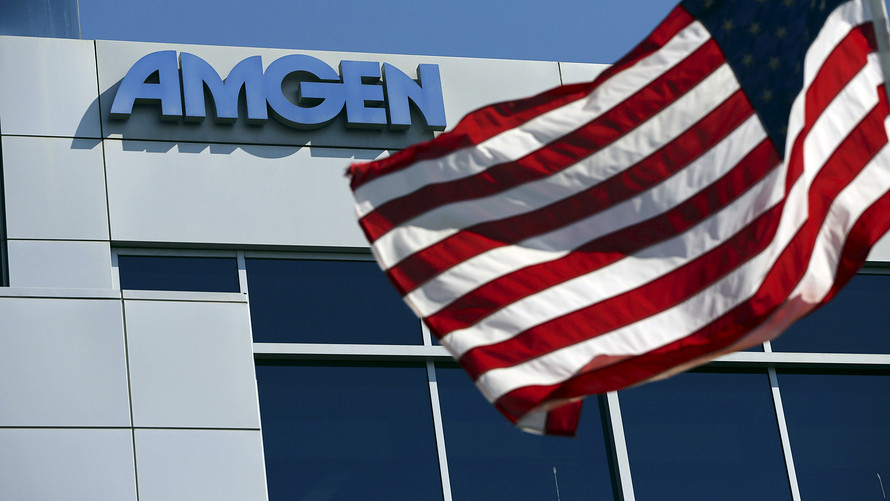
Health stocks had another bad day, with investor jitters spreading to the biotech and pharmaceutical sectors, as well.
Investors’ anxiety seemed to have expanded from health retailers, managed-care companies and health insurers to include biopharma companies on Thursday. The three biggest losers in the Health Care Select Sector SPDR Fund ETF XLV, +0.16% were Regeneron Pharmaceuticals Inc. REGN, -2.81% , Incyte Corp. INCY, -0.48% and Amgen Inc. AMGN, -2.74%
The health-care ETF edged up 0.2% on Thursday, erasing an intraday loss of as much as 1.3% after falling 2.9% on Wednesday. It is now down 0.7% for the year, while the S&P 500 SPX, +0.16% has notched gains of 16%.
Pfizer Inc. PFE, -1.25% , Johnson & Johnson JNJ, -0.72% , Merck & Co. Inc. MRK, -0.99% and Walgreens Boots Alliance Inc. WBA, -0.92% were among the Dow Jones Industrial Average’s DJIA, +0.42% top five losers.
The recent decline in health-care stocks comes during an uncertain time for the future of U.S. health-care policy, with lawmakers demanding tighter regulations and transparency on drug prices and questions swirling around the probability of the country implementing a single-payer system, also known as “Medicare for All.”
Investors initially seemed more concerned about the impact such a system could have on managed-care companies and insurers. But “sub-sectors are all naturally intertwined,” said Michael Yee of Jefferies in a note to clients on Thursday, calling the hit to biopharma “collateral damage.”
Biopharma companies enjoyed a relatively strong start to the year, but shares have slumped since. The iShares Nasdaq Biotechnology ETF IBB, -0.57% fell 0.6% on Thursday, and was down as much as 2.2% intraday. Although the ETF is up 8.4% this year, it is still trailing the S&P 500 by over 7 percentage points. The SPDR S&P Pharmaceuticals ETF XPH, +0.03% , up 6.2% for the year, is lagging the S&P 500 by almost 10 percentage points.
The health sector has seen other anxiety-inducing routs in the past, most notably in 2010, when the Affordable Care Act was signed into law that March. The sector lagged the S&P 500 by 5.1 percentage points during April of that year, as investors grappled with the possibility that mandatory coverage would cut into the profits of health insurers and medical-services companies.
But health stocks are doing much worse this year, lagging the S&P 500 by nearly 17 percentage points, the largest gap in performance since 2006.
“We are now in the midst of one of the worst pull-backs in the past 20 years,” Evercore ISI analyst Ross Muken wrote in a Thursday note to clients. “I think we can officially confirm health care has entered a panic of sorts,” he wrote.
That panic was front and center on Tuesday, after shares of UnitedHealth Group Inc. UNH, +2.26% tumbled despite the company reporting earnings that beat expectations, while also boosting its full-year outlook. That did not prevent the stock, already in decline, from falling 4% to close at $220.96.
Analysts blamed the disparity between UnitedHealth’s positive earnings and stock reaction to worries around U.S. Sen. Bernie Sanders’ Medicare-for-all proposal. “We believe the market is ascribing an inordinately high probability that some form of Medicare-for-all proposal could become reality,” Cowen analyst Charles Rhyee said at the time.























